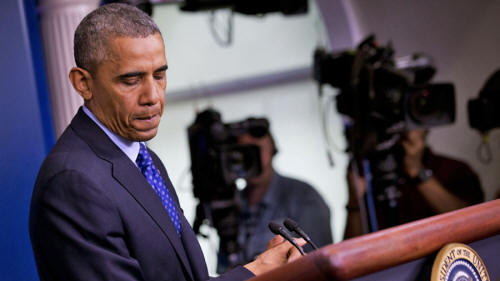|
July 28, 2014
from
OccupyCorporatism Website
The non-governmental organization (NGO) Human Rights Watch (HRW) and the American Civil Liberties Union (ACLU) have released a report (With Liberty to Monitor All - How Large-Scale U.S. Surveillance is Harming Journalism, Law, and American Democracy) explaining the damage caused by U.S. government surveillance agencies such as the National Security Agency (NSA).
The report states:
More than 92 journalists, attorneys, as well as current and former U.S. government officials were interviewed for the report.
Alex Sinha, author of the report and fellow at the HRW contends that,
Sinha said:
Both the ACLU and HRW call for the reform of the Obama administration and Congressional approval of such surveillance agencies and their ability to monitor average citizens across the world without clear and legal purpose for doing so.
Earlier this year, citizen journalism was given another prompt toward legitimacy with the 9th Circuit Court of Appeals ruling that bloggers have the same 1st Amendment rights as established journalists when involved in a defamation of character suit; as long as the issue is of public concern.
The outcome of this case establishes the fact that protections afforded the news media are not exclusive to their realm, but are also extended to citizen journalists and bloggers.
Most importantly, the judges found that,
This case highlights the findings in 1974 wherein the U.S. Supreme Court wrote that freedom of the press applies to everyone - not only journalists.
Senator Dianne Feinstein commented last year that the new Federal Media Shield would guarantee 1st Amendment protection to federally recognized journalists who are "real reporters" - not those "blogger" journalists in alternative media.
Feinstein claimed that the 1st Amendment is a privilege, not an inalienable right as defined by our U.S. Constitution.
In 2013, the mainstream media complained about pictures of President Obama that are not allowed to be made public.
Because images of the president are used by independent and alternative media, as well as corporate-sponsored, the way in which Obama is portrayed is important.
In controlling access to images of the president, this is one way of making sure Obama's image remains intact. Photographs end up in the hands of independent and alternative media which make the president look bad.
The Committee to Protect Journalists (CPJ) released a report showing that President Obama is on a crusade to subvert the freedom of the press and democracy.
Leonard Downie, professor of journalism at Arizona State University (ASU) and author of the report for CPJ said:
Downie pointed out that the Obama administration has a,
Journalists interviewed for the report conveyed the fact that the,
The Obama administration has taken internal leaks seriously with the implementation of aggressive measures under the Insider Threat Program (ITP) that conducts surveillance on journalists to prevent whistleblowing by any means necessary.
According to the Pentagon, an "insider threat" is defined as an employee,
The ITP is under high security to ensure that leverage for blackmail and coercion are utilized to the fullest extent and power by this current administration to mitigate potential leaks with co-workers spying on each other, keeping profiles for future use and the broad spectrum surveillance that remains intact long after a subject is no longer an immediate threat for future consideration.
The Obama administration made public a portion of this initiative with the presidential memorandum entitled, "National Insider Threat Policy and Minimum Standards for Executive Branch Insider Threat Programs" wherein leaks are considered treasonous acts against the current administration.
The reward based system set up by the Obama administration gave coverage and protection to those whistleblowers who "followed the proper channels" when leaking out information and paved the way for the ITP to punish other who did not allow the federal government to control their leaks.
Under ITP, Obama asserted that intelligence agencies would follow a subject for years after they had "defected" from the U.S. government to determine if highly classified documents had been acquired and could be released to media outlets or the general public.
|

